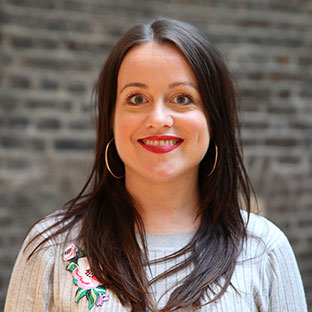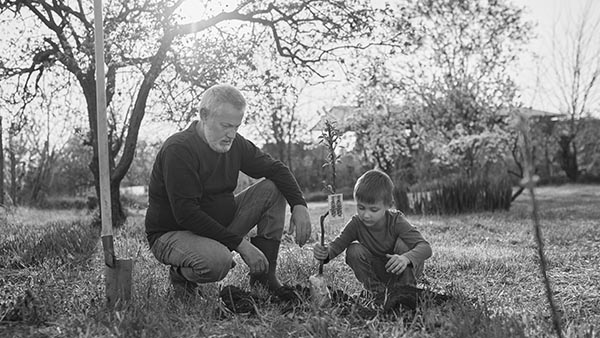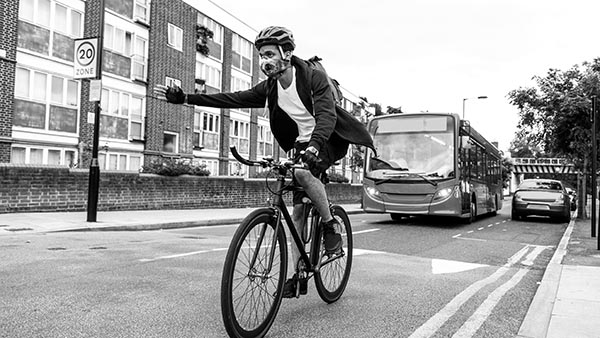We live in interesting times, as the apocryphal proverb has it. Or to clumsily paraphrase Hegel - periods of collective happiness are blank pages in the history books. I think we can wager that the ‘would-be-farcical-if-not-so-dangerous’ turns of the Trumpxit years will warrant a few pages in the early C21st chronicles.
Over the many years curating the RSA’s events programme, my colleagues and I have seen the world’s greatest thinkers and doers sketch a complex picture of humanity today. At times those thought leaders have provided real fodder for hope and change – at others they have issued dire warnings that feel alarmingly prophetic.
Optimistic writers like Steven Pinker analyse larger trends and point to undeniable human progress on a variety of different measures. We’ve never been healthier, wealthier or safer, and liberal doom-mongers are simply failing to attend to the data.
But within those large, reassuring trends are little blips, shudders and backward steps. Reasons not to be cheerful. Political analysts like Yascha Mounk and David Runciman, and novelists like Elif Safak warn of the rise of populism and the perilously tenuous nature of democracy; politicians like Caroline Lucas reminds us that climate change is not being addressed hard or fast enough; geographers like Danny Dorling and social epidemiologists like Kate Wilkinson and Richard Pickett show how UK is one of the most unequal large countries in the western world; and campaigners like Laura Bates like show how gender inequality persists and damages us all.
And as Rutger Bregman so persuasively outlined in our RSA Short, even if we accept the argument that we’ve ticked all the major boxes to secure fundamental human needs (and of course there are many – even in the most affluent cities in the western world – for whom life is still a struggle for basic survival); there is still space for radical ideas that could go beyond and guarantee our flourishing. Things can always be better. Imaginative, once-fringe concepts like a Universal Basic Income are increasingly entering the mainstream, and Obama’s recent seal of approval cements it even farther as a feasible way to reimagine our society’s principles. George Monbiot mentioned UBI, alongside many other fresh, innovative suggestions in his rousing talk a few weeks ago.
We need spaces and institutions where ideas like this can circulate and seed – now more than ever. The RSA’s free public events programme aims to do just that. And we need them in packages that are not alienating, or couched in impenetrable language, or indigestible to the people who really need them. And we need to be realistic and acknowledge the time people have spare in their hectic lives.
To that end, we’ve been working with our old friends at Cognitive on an exciting new animation project. Today we launch the first of a new, shorter series of whiteboard animations for busy people with a taste for world-changing ideas: RSA Minimates!
This inaugural RSA Minimate looks at an issue that truly unites us all – the value of sleep. In a society characterised by rapidly changing pace, rising pressures and shifting priorities, with public services increasingly under strain and mental health problems set to overtake ‘physical’ ones as the greatest disease burden of our times, attending to the quantity and quality of our sleep is more than just an individual concern. Who knows what solutions to global challenges we could conjure up if we only had some decent rest!
As my colleague Phoebe put it – if you could solve one of the greatest public health crises of our day without getting out of your pyjamas, would you do it?
Do take a minute and a half out of your day and watch (and share!) our very first RSA Minimate. Against the backdrop of our current political maelstrom it may seem too small to make a mark. But think of the mouse and the elephant, or the acorn, or the oft-quoted beating of a butterfly’s wings. From small things, big things grow….
Related articles
-
Using economic strategies to improve health outcomes
Ian Burbidge
Ian Burbidge on the importance of an inclusive economy that provides equitable healthcare to the public.
-
Thinking about the future differently
Ella Firebrace
To solve today’s challenges, we need to think long-term. How can we do that?
-
A healthy economy?
Ian Burbidge Will Grimond
Covid shows us how our health and the economy are linked. Politics has been slow to catch up on the connection.




Join the discussion
Comments
Please login to post a comment or reply
Don't have an account? Click here to register.
OK, our man is sure we need more sleep. How much do I need? Do I work it out for my self, or do I need a boffin to tell me?
It would be great if he could share with us some evidence that sleep deprivation is a problem, but thus fa we only seem to have assertions.
That's all good and well, and we should certainly aim for a good eight hours. I'm sure I averaged that when I was pre-16, but having had a good social life / university experience, three children, managed a start-up business through 9 years of growth, been keen to extend my evenings for social time and excited about the day ahead getting me up around 6.30 most days, is how I live a fulfilled life. I'll settle for 6 or 7 hours sleep most nights thank you, and aim bring up the average in my retirement. Does it work that way? I also feel that the pressure of trying to get 8 hours (another health mandate) is just not worth the additional stress! Anybody agree.
What on earth is 'deliberative decision making?! I suspect it means that the writer wishes for additional influence over and above the democratic process.
What is the 'Brexit chaos?! The government is doing everything possible to negotiate an acceptable agreement based on the result of the referendum. Should that not be possible the country moves in a different direction without any restrictions over and above the WTO agreements. Of course the day after such an outcome the negotiations will start again but in a situation of greater equality.
Bear in mind that the current generation of Euro politicians is already beginning to change. In the future the pressure will be on their successors ase the EU currently gains more in trade from the UK than does the UK from the EU. In that situation they will have to answer the calls for clarity from Airbus and the European carmakers!
Dr. Nigel Molden